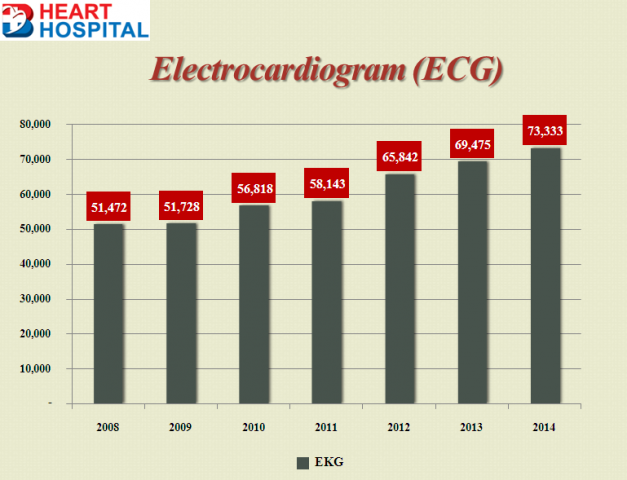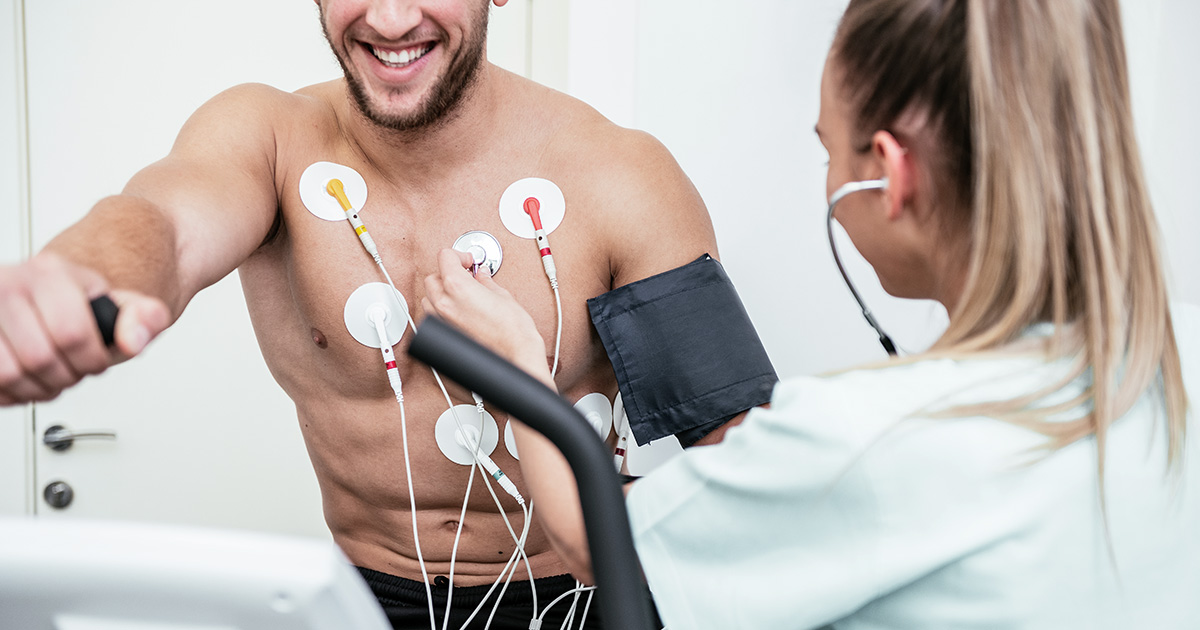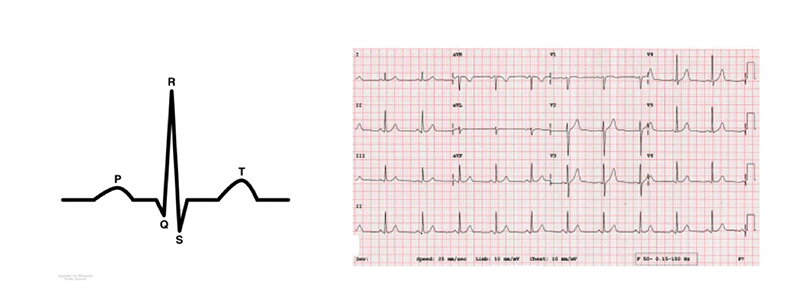Electrocardiogram (EKG)
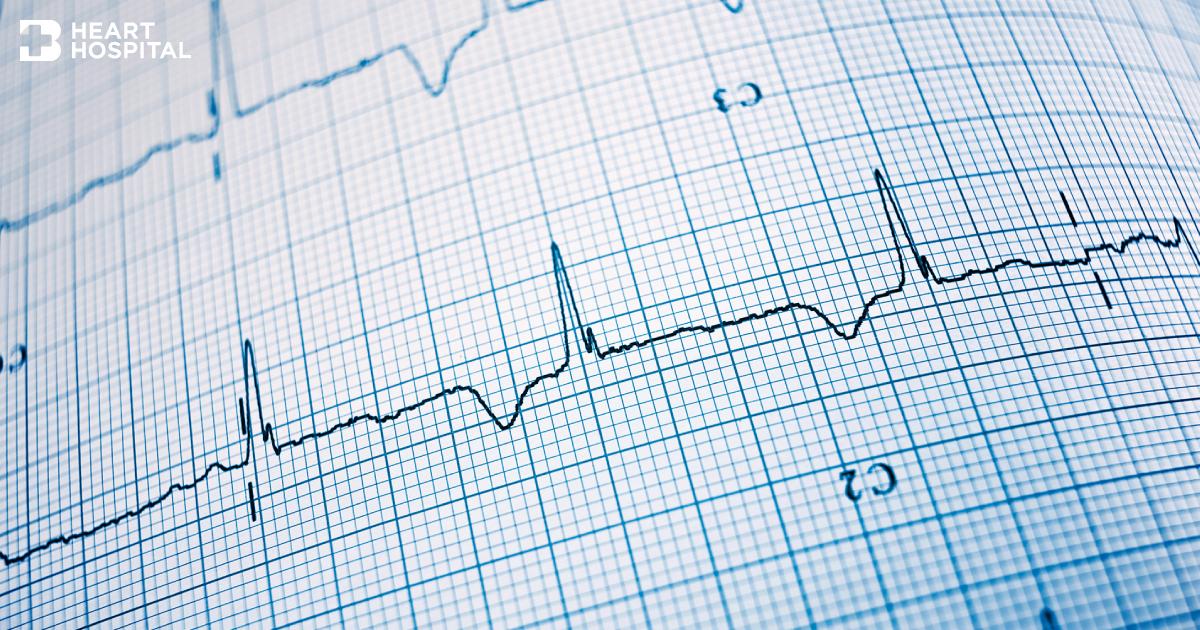
diagnosis
table of contents
What is ECG, (EKG)?
How Is an ECG Done?
What can an ECG tell us?
How long does it takes?
Risks and side effects
Pre and post procedure care
Electrocardiogram (ECG / EKG) at Bangkok Heart Hospital
What is ECG, (EKG)?
An electrocardiogram — abbreviated as ECG or EKG, is one of the simplest, oldest and fastest cardiac investigations available yet it can provide a wealth of useful information and remains an essential part of the assessment of cardiac patients. An electrocardiogram measures the heart’s electrical activity
How Is an ECG Done?
This is a painless procedure. The patient is asked to lie down, and a series of small metal tabs (called electrodes) are fixed to the skin with sticky papers. These electrodes are placed in a standard pattern on the shoulders, the chest, the wrists, and the ankles. After the electrodes are in place, the person is asked to hold still while the heartbeats are recorded for a short period of time.
An ECG records the heart’s electrical activity, while it travels through the heart, on a moving strip of paper or a line on a screen. The graph consists of multiple waves, which reflect the electrical activity of the heart. There are 3 basic waves which are the P wave of the upper chambers activity, the QRS Complex of the lower chambers activity and the T wave which is the electrical recovery of the lower chambers. The ST segment usually appears as a straight line between the QRS complex and the T wave.
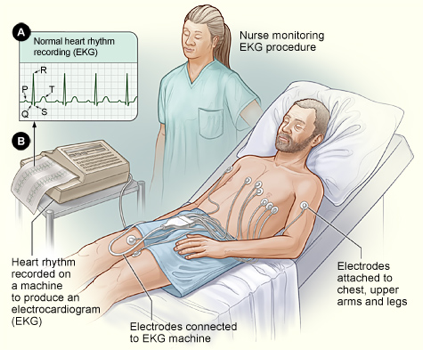
What can an ECG tell us?
- Assess your heart rate and rhythm.
- Diagnose all types of arrhythmia (abnormal heart rhythm).
- Diagnose poor blood flow to the heart muscle (ischemia) and a heart attack.
- Diagnose several abnormalities of the heart, such as heart chamber enlargement and abnormal electrical conduction such as heart block.
Other related procedures that need ECG include exercise electrocardiogram, Holter and events monitoring, cardiac catheterization, echocardiography, electrophysiological studies, magnetic resonance imaging (MRI) of the heart, myocardial perfusion scans, radionuclide angiography and cardiac CT scan.
Please see these procedures for additional information.
How long does it takes?
Only a few minutes (less than 5 minutes).
Risks and side effects
No need for special preparation.
Pre and post procedure care
No need for special preparation.
Electrocardiogram (ECG / EKG) at Bangkok Heart Hospital
- Computerized ECG management system
- PACS system for all for ECG and other cardiac imaging
- Electronic medical record system
Number of ECG done at Bangkok Heart Hospital and Bangkok Hospital at Headquarter
